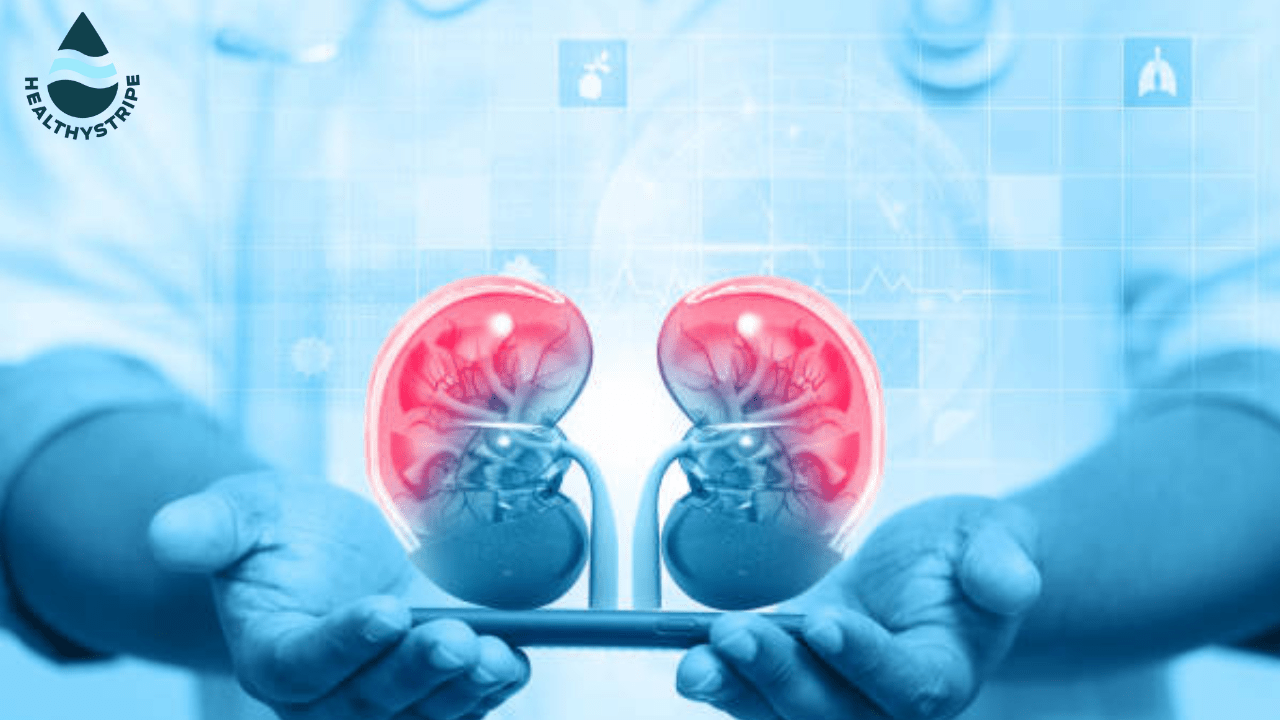Lightheadedness: Causes, symptoms, Treatment, Prevention

We have all been through it at some point or another in our lives. The world suddenly starts spinning, we feel woozy and faint and may want to puke, our vision may blur and our heart starts pounding in our chest. It’s probably lightheadedness.
What is lightheadedness?
Lightheadedness is a sensation when one feels faint or is about to lose consciousness. Nearly 40% of adults in the US experience it at least once in their lifetime. While it may seem daily innocuous it can be the marker for a more serious underlying condition. Collapsing due to lightheadedness can also result in serious injuries. Let’s find out more about this condition.
Causes of Lightheadedness
When we are trying to figure out the causes of lightheadedness, the etiology can be quite varied. Here are a few causes and conditions that can cause lightheadedness.
- Dehydration: A lack of water in the body is a frequent cause of lightheadedness and is often seen in the summer months or after strenuous activity. A dehydrated state can cause a drop in blood pressure and lead to giddiness.
- Low blood sugar: Low blood sugar can cause lightheadedness. The condition is known as hypoglycemic syncope. According to stats, hypoglycemic syncope is the most common metabolic syncope, with a reported incidence of 0.6% in diabetic patients and 4% in diabetic patients who take insulin. Hypoglycemia is common in diabetics who may have skipped a meal or undergone any strenuous activity.
- Anaemia: A lack of red blood cells can cause wooziness, as the body is not getting enough oxygen. Anaemia is more commonly seen in women and is most commonly caused due to iron deficiency.
- Low blood pressure: When blood pressure drops too low, blood supply to the brain may be diminished. A sudden change in position can cause a reeling sensation known as postural hypotension.
- Medications: Certain medications, such as those used to treat high blood pressure, anxiety, or depression, can cause lightheadedness as a side effect. Researches show that ACE inhibitors, used to treat hypertension can lead to hypotension in certain cases.
- Inner ear disorders: Our ears not only help us in auditory functions but also maintain body balance. Disorders of the inner ear, such as Meniere’s disease, can cause lightheadedness and vertigo.
- Syncope: Syncope is a loss of consciousness due to a transient lack of blood supply to the brain. One of the pre-symptoms of syncope is dizziness.
- Heart problems: Cardiac and circulatory problems, such as a heart attack or arrhythmia, can present wooziness as a symptom. It may also be due to a stroke.
- Hyperventilation: Breathing too quickly or deeply can cause dizziness. This can be a result of stressful states. The unsupervised or untrained practice of breathwork such as the Wim Hoff method or pranayam can cause lightheadedness.
Symptoms of Lightheadedness
The most commonly seen symptoms of lightheadedness are the feeling that the surroundings are spinning and that you are going to pass out.
Other symptoms include
- Unsteadiness or loss of balance
- Nausea or vomiting
- Weakness or fatigue
- Tunnel or Blurred vision
- Confusion or disorientation
- Headache
- Chest pain or discomfort
- Rapid heartbeat or palpitations
- Jerking movements
- Cold Sweats
- Skin pallor
- Dilated Pupils
Diagnosis of Lightheadedness
While some causes are harmless, others can be fatal hence a careful investigation is imperative for a proper diagnosis. A detailed history, examination and symptoms are sufficient for a medical professional to diagnose lightheadedness. Your healthcare provider may prescribe further tests to ascertain the underlying pathology. These tests can include
- Blood Tests: Blood work can help identify if the lightheadedness is caused by anemia, hypoglycemia, or other metabolic imbalances.
- ECG (Electrocardiogram): An ECG tells the doctor about your cardiac function and helps to diagnose heart problems that may be causing lightheadedness.
- Tilt table test: This test involves lying on a table that tilts to simulate changes in position. It can help diagnose conditions such as orthostatic hypotension, which is a drop in blood pressure upon standing up.
- Vestibular function tests: These tests evaluate the function of the inner ear, which can help diagnose conditions such as Meniere’s disease.
Imaging tests: Radiographs or other Imaging tests such as CT or MRI scans may be ordered if a healthcare provider suspects that the lightheadedness is caused by a problem in the brain or inner ear.
Treatment of Lightheadedness
If you find someone who has collapsed or is feeling woozy help them lie down comfortably with their legs elevated and call emergency health services. The treatment of lightheadedness involves understanding the underlying cause and treating it. Here are a few at-home remedies that you can try for curing lightheadedness.
- Stay hydrated
- Eat a balanced diet composed of whole grains. Consume small but frequent meals to maintain your blood sugar levels.
- Epley Manoeuvre – This at-home method is good for vertigo and ear-related causes
- Lifestyle changes to avoid high-stress environments.
- Yoga, meditation, breathwork, and journaling can all help you manage stress and reduce the symptoms of giddiness.
- Ginger tea is great for improving circulation. Brew ginger in boiling water and consume it as a natural remedy for lightheadedness.
- Amla and coriander seeds- This Vit A and Vit C-rich supplement helps prevent lightheadedness as Vitamin C helps in the absorption of Iron in the gut.
- Lemon Juice- It is rich in Vit C and antioxidants can reduce lightheadedness due to vertigo.
- Body massage- Body massage and hot and cold water baths can improve circulation and reduce frequent episodes of lightheadedness.
Medications for Lightheadedness
- Iron supplements for anemic individuals
- Vit C, D E supplements can be great for people suffering from the inner ear, vertigo, and circulatory problems.
- Blood pressure medicine or other prescription drugs.
- Anti-Anxiety Medication
- In some cases, alternative medicine approaches such as acupuncture and Ayurveda have proven to be helpful in treating wooziness.
- They may also involve other more invasive procedures such as surgery in case of serious heart conditions.
Prevention of Lightheadedness
Understanding and avoiding the specific causes and triggers for lightheadedness in your own case is the single best way to prevent it. Some general prevention ideas are as follows-
- Stay hydrated: Drink plenty of fluids, especially water, to prevent dehydration, which as we saw, is a major cause of lightheadedness.
- Eat a balanced diet: Eating a healthy, balanced diet can help maintain blood sugar levels and prevent lightheadedness.
- Exercise regularly: Regular exercise can help improve circulation and prevent lightheadedness.
- Stand up slowly: To prevent orthostatic hypotension, which is a sudden drop in blood pressure upon standing up, stand up slowly and wait for a few seconds before walking.
- Avoid overheating: Avoid exposure to hot environments or prolonged exposure to the sun, especially during summer.
Stress Management: Stress is a major factor behind bouts of wooziness. Managing stress through smart lifestyle choices, meditation, breathwork, and journaling can be key adjuncts for the prevention of lightheadedness.
Conclusion
Lightheadedness is a sensation of the surroundings spinning and feeling woozy and faint. It affects millions throughout the world. While the symptoms may not seem very dangerous or threatening, we can end up paying a heavy price for taking it lightly. The underlying conditions can often be serious and falling or collapsing as a result of lightheadedness can cause serious and even fatal injuries. Fortunately, it can be managed as well as prevented with some simple precautions and you can live a healthy and happy life even if you suffer from it.
What is the difference between lightheadedness and dizziness?
Can lightheadedness be a sign of a heart attack?
While lightheadedness can be a sign of a heart attack it is more likely to be caused by other factors such as dehydration.
Is lightheadedness a symptom of dehydration?
Lightheadedness is one of the most common symptoms of dehydration.
Can anxiety cause lightheadedness?
Anxiety can result in lightheadedness due to the release of stress hormones.
How long does lightheadedness typically last?
A bout of lightheadedness usually lasts for around 15 seconds to a minute. If you experience longer or more frequent spells, you should consult a healthcare provider.
Is lightheadedness a symptom of a stroke?
While lightheadedness can be a sign of a stroke it is more likely to be caused by other factors such as dehydration.
Can medication cause lightheadedness?
Certain medications, such as those used to treat high blood pressure, anxiety, or depression, can cause lightheadedness as a side effect.
What should I do if I feel lightheaded?
Sitting down, getting hydrated and taking deep breaths help if you feel lightheaded. Visit a doctor if symptoms persist.
What are the causes of dizziness in women?
The causes of dizziness in women can vary and may include inner ear disorders, low blood pressure, dehydration, medication side effects, anemia, and neurological disorders.
Why do I feel lightheaded every day?
There could be various reasons for feeling lightheaded every day, such as low blood sugar, dehydration, anxiety, anaemia, medication side effects, or a medical condition that affects blood pressure or circulation. Consult a healthcare provider as soon as possible.
What vitamin deficiency causes lightheadedness?
A deficiency in vitamins C, D E, and B12, which are essential vitamins for ear function, cardiovascular and nerve function. For Eg- The absence of Vit B12 can lead to anemia and neurological problems, including dizziness and lightheadedness.









